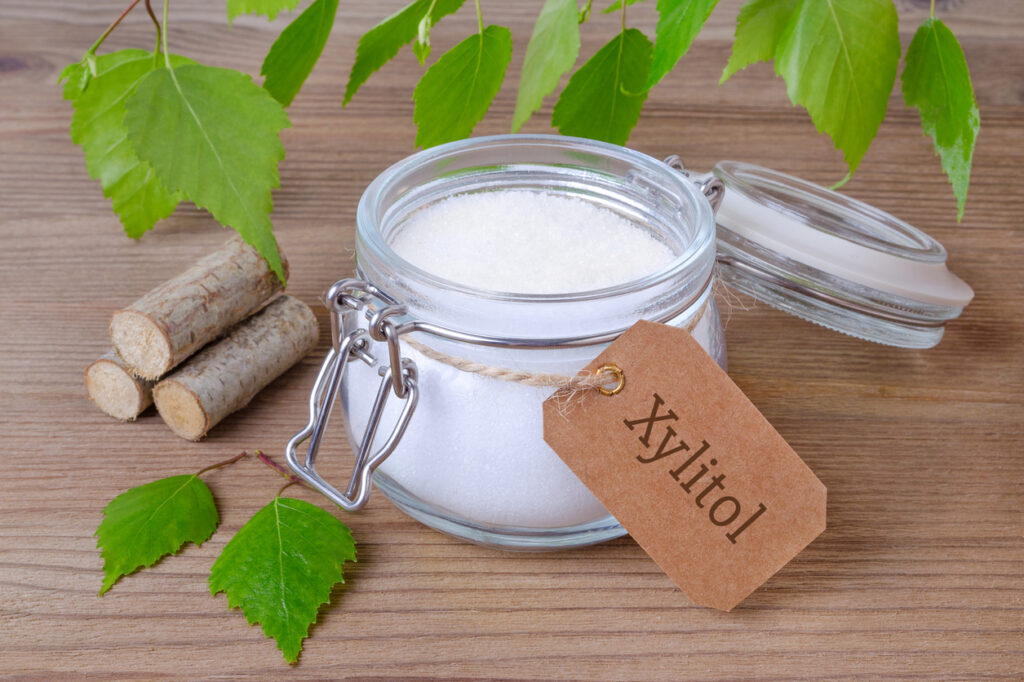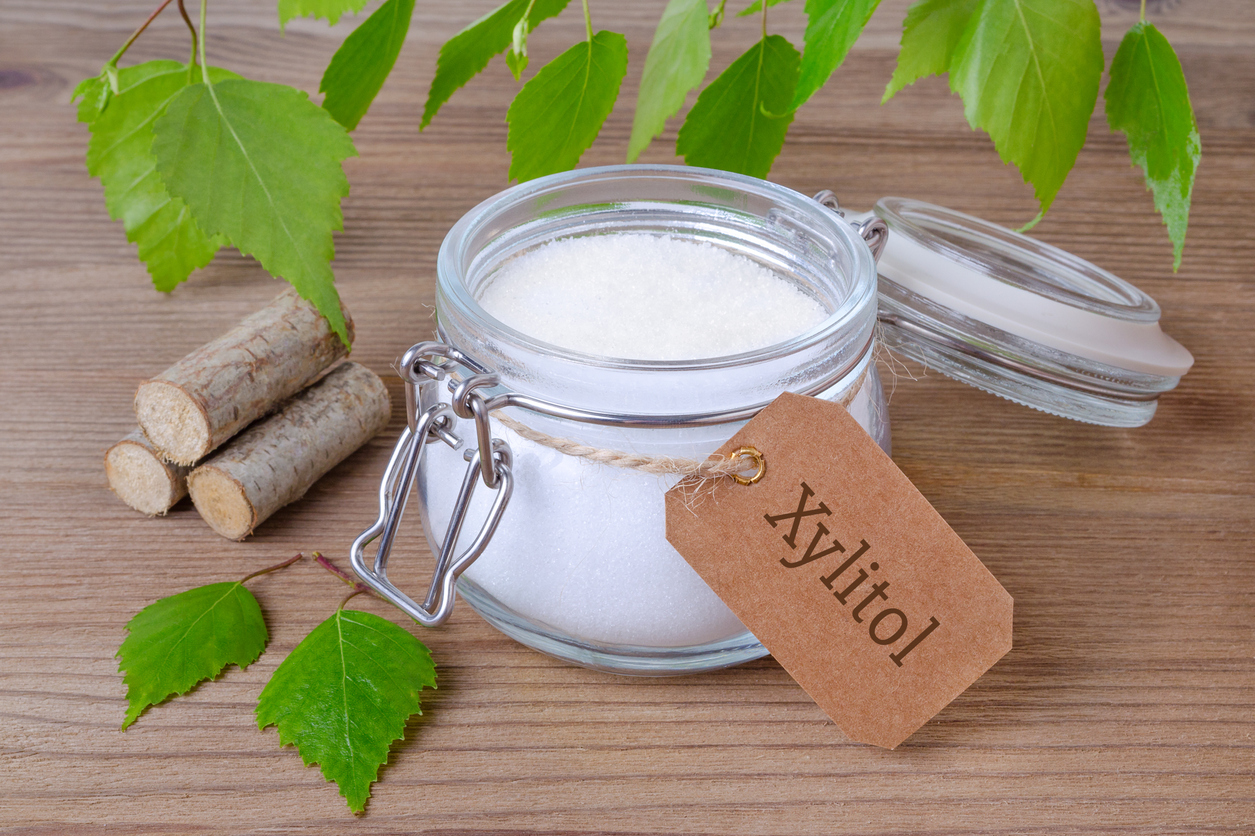Many of you may have heard about Xylitol. It is most often found in candies and chewing gum in place of sugar. Xylitol is a sugar alcohol sourced from corn or birch trees. It has a texture and sweetness both comparable to sugar, but with fewer ill effects. Xylitol is non-fermentable, meaning our oral bacteria can’t use it to produce cavity-causing acids. It also prohibits bacteria from adhering to cellular tissue. This prevents oral bacteria from thriving.
Xylitol contains about 40% fewer calories than regular sugar and has little to no effect on insulin and blood sugar levels. These facts make it a great option for those with diabetes. In addition to candies and chewing gum, Xylitol is also often found in many dry mouth products. You can reference our previous post for a list of those products here. If you’re a habitual gum chewer, you may want to consider trying a gum with Xylitol. It’s a great sugar-free option without the side effects of many artificial sweeteners and it’s great for your teeth! Spry is a great option with many flavor choices!
Chewing gum has multiple benefits for oral and even overall health! Dentally speaking chewing sugarless gums has been proven to reduce plaque, promote tooth enamel, and reduce cavities and gingivitis. The reason has to do with increasing saliva flow, which reduces the acid on your teeth that causes decay. On top of these dental benefits studies have shown that chewing gum improves concentration, improves wakefulness, combats stress, reduces acid reflux, improves breath, improves eating habits, helps with quitting cigarettes, and relieves dry mouth. Some report chewing gum as a natural relief to nausea and even helping with ear pain on flights!

There are a few special considerations to consider when using Xylitol. Although our bodies make up to 15 grams of Xylitol a day, everybody is different and too much can have a laxative effect. Xylitol is safe for human consumption, but it is not safe for dogs! In both people and dogs, the level of blood sugar is controlled by the release of insulin from the pancreas. In people, xylitol does not stimulate the release of insulin from the pancreas. However, it’s different in canines: When dogs eat something containing xylitol, the xylitol is more quickly absorbed into the bloodstream and may result in a potent release of insulin from the pancreas. So, remember to keep any Xylitol-containing products out of your pets reach!
If you have any questions about Xylitol or are looking for product recommendations, ask us at your next visit!
References:
Life Extension Magazinehttps://www.lifeextension.com/magazine/2014/2/sweet-as-sugar-health-benefits-of-stevia-and-xylitol/page-01
XLEARhttp://www.xlear.com/what-is-xylitol/
Wise Bread:
https://www.wisebread.com/11-surprising-benefits-of-chewing-gum
FDA
https://www.fda.gov/ForConsumers/ConsumerUpdates/ucm499988.htm

